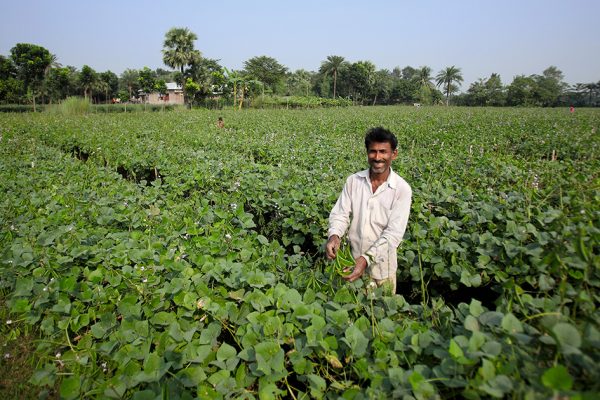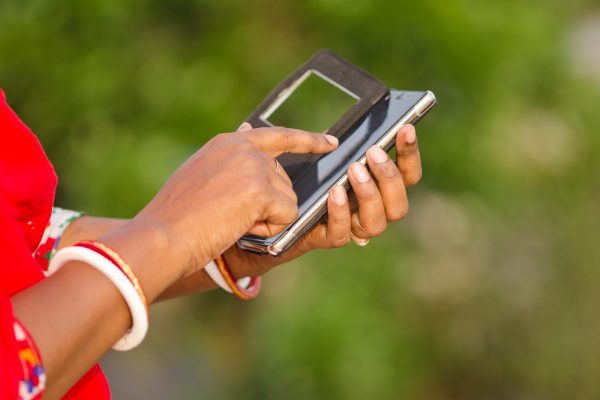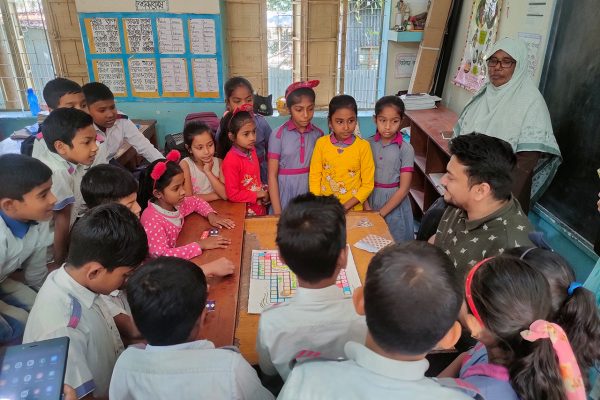On location with BRAC in Bangladesh
Reading Time: 4 minutes
Amplifier Strategies and BRAC USA traveled to Bangladesh in March to meet with the BRAC International leadership team and discuss our ongoing partnership for Amplifier’s latest Collaborative Initiative. We built the Initiative as a special opportunity to engage family and individual philanthropists in a global partnership to end extreme poverty.
This article was originally published on Amplifier Strategies website on 8 April 2014 by Wren Brennan.

Amplifier Strategies and BRAC USA traveled to Bangladesh in March to meet with the BRAC International leadership team and discuss our ongoing partnership for Amplifier’s latest Collaborative Initiative. We built the Initiative as a special opportunity to engage family and individual philanthropists in a global partnership to end extreme poverty. The Initiative will help support the advocacy and scaling agenda that BRAC and key implementation partners are creating around BRAC’s ultra-poor graduation program. The program has helped 1.4 million families in Bangladesh leave poverty behind and has been successfully piloted in eight countries. Seeing BRAC programs at work on the ground gave us insight into the graduation program’s readiness for expansion and underscored BRAC’s ability to provide invaluable, high-quality support as scaling continues.
In Dhaka, the densely populated capital of Bangladesh, BRAC (formerly the Bangladesh Rural Advancement Committee) is a household name. The organization is not only the largest NGO in the world according to The Global Journal, but also among the top ranking microfinance organizations, with a suite of activities in education, legal aid, food security and maternal-child health. BRAC’s graduation program serves 80,000 households in Bangladesh every year.
Signs bearing BRAC’s bright pink logo are welcome splashes of color on the busy streets, marking health clinics, schools, community centers, and more. With over forty years of experience, the organization is well respected—and well represented—throughout the country. The flourish of BRAC’s emblem on every corner is a sign of its steadfast commitment to creating opportunities for some of the world’s poorest people.

One of BRAC’s key strengths is its ability to build a strong on-the-ground team and instill in its staff members a culture of commitment that keeps them connected to the fieldwork at every level, from program officer to senior-level staff. As such, graduation program staff are able to continually iterate, adapt, and transform the program to meet the needs of many families.
Rabeya Yasmin, ultra poor program director, helps her staff stay alert to ever-changing needs and circumstances in the field so they can deliver quality results and support transformative change in the lives of program participants. “We create an environment of highly responsive management,” she said. “Every day we come up with very unique situations and discuss among the staff. Every single household has different strengths and weaknesses, and challenges to overcome. We are always working to bring more innovations to our implementation strategies.”
BRAC program staff have provided technical assistance to pilot graduation programs in Asia, Latin America, and the Middle East and are poised to do even more. Programs across regions show evidence for hope and transformation: at the start of the program, families are often so desperate to make ends meet that they cannot save up for the future. They are unable to make a living from assets that will continue to be productive over time, like livestock or goods for small trade. The women in these families are timid and rarely speak up in public. Yet within 24 months, participants have a sustainable livelihood, are active in their community; they have learned not only to make a living, but also to invest in education, healthcare, and other life skills.

Program participants at their first day of skills training.
Sagarika Indu, Senior Manager for the ultra poor program’s global advocacy work, met with us to discuss how tangible transformation takes place. BRAC uses a foundational set of indicators to track the social and physical capital of its participants. BRAC’s intensive, culturally sensitive methodology of working alongside people is effective in teaching new skills and inspiring confidence, creating positive and lasting change in the lives of participants.
Indu explained that most often the simplest lessons take hold at the village level, such as teaching a woman how to sign her name for the first time. When a participant enrolls her children in school, she begins to see the value in using a signature to validate her children’s education. “When the mother signs her name, the children will also feel proud,” said Indu. Most of all, learning to write their own names gives these women greater strength and self-assurance moving forward. “When they learn to write their names, there is a great joy in their faces,” she said.

Over time, program participants can lift themselves from destitution to a state of self-confidence and self-worth. We visited one woman and her family who had been out of the program for five years. She owned and sold goats, and she had saved up to buy outfits to wear when she attended community meetings. Prior to entering the program, she would have to borrow clothes or else not attend at all. Within months, she was speaking up at community meetings, and she wasn’t afraid to ask questions.
BRAC ultra poor program staff have the capacity, experience, and drive to bring graduation programs to new regions and cultures as needed and ensure quality implementation several years down the road. We saw opportunities for our team at Amplifier to support BRAC’s iterations with streamlined technology and learning tools for staff. Above all, the team was thrilled to jumpstart this partnership and move forward with the project together.

Saddiq, Senior Regional Manager for the ultra poor program.
The Amplifier team agreed wholeheartedly that BRAC will remain a source of hope for families in Bangladesh and throughout the world for years to come. ”The way the two teams got along was amazing,” said Yumi Sera, Amplifier’s Director of Philanthropic Initiatives. “We really gelled together. When we back new pilots and scale ups, we always want to make sure that high quality outcomes are possible when adapted to new regions and contexts. BRAC’s program in Bangladesh is a shining example.”

Sagarika and Yumi, both wearing what they called “BRAC pink.”







